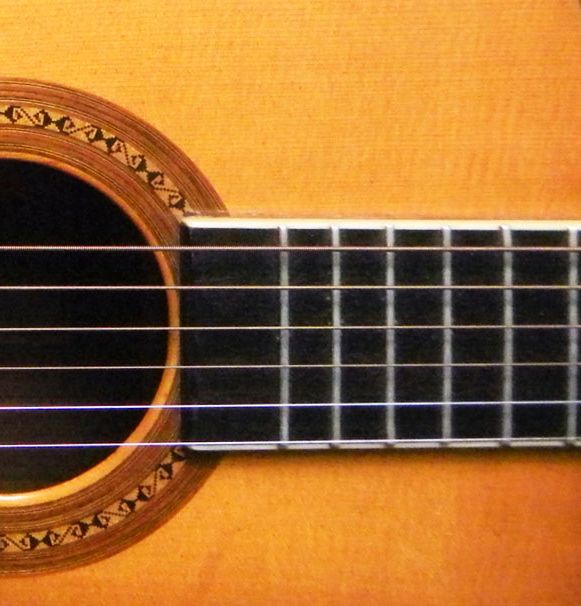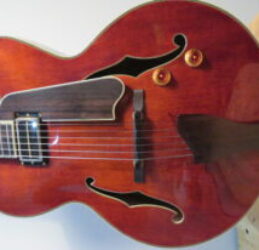In classical music, “Andrès Segovia” is almost synonymous with the word “guitar”, because of the importance of his contribution to the instrument’s repertoire and fame. At the beginning of the 20th century, the guitar was not considered worthy of the classical domain like the piano or the violin, even in Spain. This lack of recognition came partly from a technical problem: the guitar as it was made at the time did not emit a sound powerful enough for most concert halls. It was also associated mostly with popular music.
Segovia tackled both problems head-on. First, among the models available at the time, he obtained an exceptional guitar from José Ramirez. According to his memory, the maker told him that he would “pay by making its manufacturer known around the world.” Later, he collaborated with luthier Hermann Hauser Sr. to improve the sound of a new model with better quality woods and strings. Both also made the instrument evolve into a larger format that deployed more resonance. At the same time, Segovia was developing a demanding repertoire, both classical and contemporary. In addition to adapting pieces by Francisco Tárrega, while touring the US in 1928 he performed the “Études” dedicated to him by Brazilian composer Heitor Villa-Lobos. A long-term friendship was established between them and they contributed to each other’s reputation. The guitarist also worked on adapting Bach’s repertoire to the guitar, interpreting in 1935 his version of the “Chaconne” from Partita No. 2, a demanding piece for any musician.
After the Second World War, Segovia multiplied recordings and toured Europe and the United States. In 1958, he won the Best classical performance Grammy for his album “Segovia Golden Jubilee”. Knighted in 1981 by the Spanish government, he went on to play into his old age, as shown in the documentaries “Segovia at Los Olivos” (1967) and “The song of the guitar” (1976), filmed nine years apart by Christopher Nupen. In 1986, Segovia was the recipient of the Grammy Lifetime Achievement Award. He died the following year, in spite of a prayer that he enunciated with humor: “My God, I do not care about paradise: please leave me here.” We can conclude that heaven needed an apostle of the guitar just as much as we did.

